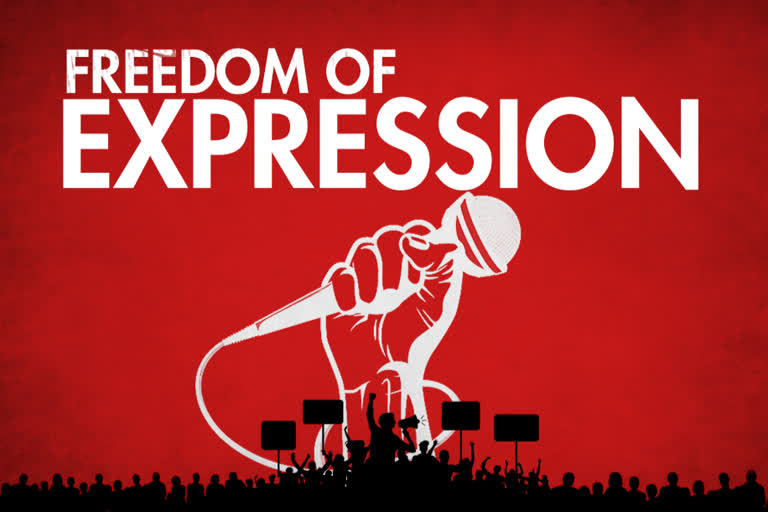New Delhi: For parliamentary democracy well-intended criticism is lifeline. In India, we rejoice unity amidst diversity. We enjoy the unique privilege of achieving and strengthening of harmonious social fabric, notwithstanding the difference of opinion and contradiction of ideas. It is well known that some eminent personalities have written an open letter to the Prime Minister on mob lynching of the minorities. Treating this as a serious crime and rebellion against the nation, filing of cases against them under various petty sections of the Indian Penal Code is heinous. The intention of that letter was to request the Prime Minister to track such ongoing attacks.
Ironically, another set of 62 eminent people have rebuked that letter claiming it as tarnishing the image of the country and undermining the impressive performance of the prime minister besides "supporting secessionist tendencies". Even though the first letter was signed by eminent historian, Ramachandra Guha, famous film director, Addoori Gopalakrishnan, Mani Ratnam, Shyam Benegal etc., still it was supposed to be ill-intended to tarnish country’s and smacks of partiality. Even if it was felt that the letter was politically motivated, the rejoinder by 62 eminent personalities is more than adequate and serves the purpose.
On the contrary, a local advocate complains that by writing in the newspapers and also complaining to the Prime Minister, they are bringing disrepute to the country. On this a magistrate from Bihar strangely issues orders to book cases of sedition against the country. Right thinking people wonder as to how writing a letter to the Prime Minister would tantamount to conspiring against the country.
“More than sedition laws, more importance should be given to the freedom of expression provided by the Constitution to all its citizens.” This is the opinion expressed by Supreme Court Justice Deepak Gupta. The judge further candidly stated that though nobody has indulged in sedition as defined by the Constitution, the police in the recent past have been misusing the ‘term’ and arresting people, subjecting them to humiliation.
In the Constitution Committee, eminent personalities like Ananta Sayana Iyengar, have refuted the Sedition Act, which was incorporated by the British to suppress the freedom of Indians 150 years ago, has no locus standi in independent India. Further, while disposing of State vs Kedarnath Case, the court having noticed that the stringent regulations incorporated under 124 A of Indian Penal Code has in its historical judgement has demarcated the extent of sedition charges.
